The Vector
Volume 9, Issue 5: May 2020
Editorial Team
Melvin Rincon, M.D., Ph.D. – Editor, The Vector
Edith Pfister, Ph.D. – Associate Editor, The Vector
Karen Bulaklak, Ph.D. – Junior Editor, The Vector
Inside This Issue
Leadership Message
Breaking Through
Society News
Career Center
Public Policy
Industry News
Leadership Message
Moving into a New Phase of Leadership
 Dear Colleagues,
Dear Colleagues,
It’s hard to believe how much has happened in our Society and our field over the past year, and even harder to believe that this will be my last message as President of ASGCT. It has been an honor to serve our members in this role, and I’m so proud of all the fantastic work you have all done in the field of gene and cell therapy over this last year. I’d like to congratulate our next President, Stephen Russell, M.D., Ph.D. Dr. Russell is a leader in oncolytic virotherapy at the Mayo Clinic, and I am confident that his leadership will continue to move ASGCT in the right direction.
So, where does the Society stand as we enter this new phase of leadership? ASGCT has continued to not only grow, but adapt in the face of uncertainty. Our membership has reached 3,600—a 20 percent increase from 2018-19. We created several new committees, committed to an updated Strategic Plan, hosted our first annual Policy Summit that brought international regulatory and advocacy experts to Washington, D.C., introduced the Jerry Mendell Award for Translational Science and the Best of Molecular Therapy Award, and developed a brand new initiative from our Patient Education program focusing on disease-specific treatment resources. Last but not least, we were faced with unprecedented circumstances that led us to hold our first-ever virtual Annual Meeting, which was no small feat. However, I’m proud to report that we had more than 1,400 pieces of new research in our largest collection of abstracts, and we hosted more than 6,000 virtual attendees. I want to express my deepest gratitude to all the ASGCT members, volunteers, and staff, for making the virtual meeting possible.
Let’s keep this momentum going in 2020-21. I look forward to seeing us build on the expertise we’ve established, and this includes providing resources to support early-career scientists. Starting June 1, ASGCT members can apply for our Career Development Award. These awards support independent transformative pilot studies in gene and cell therapy that would otherwise be difficult to fund.
I hope you all continue to stay safe and healthy, and that you enjoy the rest of the 23rd Annual Meeting. I am already looking forward to being together in person in Portland for the 24th Annual Meeting in May 2021!
Sincerely,
Guangping Gao, Ph.D.
ASGCT President
Breaking Through
Translational Feasibility of Lumbar Puncture for Intrathecal AAV Administration
Hinderer C, Katz N, Dyer C, Goode T, Johansson J, Bell P, Richman L, Buza E, Wilson J
DOI: https://doi.org/10.1016/j.omtm.2020.04.012
Summary by Melvin Rincon, M.D., Ph.D.
Safety and efficient delivery of adeno-associated viral (AAV) vectors to the central nervous system (CNS) remains a challenge. The concentration of AAV vectors achieved in the CNS after systemic delivery reflects the restricted activity of the blood-brain barrier, with a consequent decrease in the widespread CNS AAV transduction. Different approaches have been followed in the last years; the development of the AAV.PHP.B capsid variant was a well thought out strategy to overcome the BBB limiting step. However, an unexpected strain-specific effect was later reported, limiting its application in non-human primates (NHP) and, in general, its clinical translational usefulness. Recently, another AAV variant known as AAV-F has shown similar transduction efficiency in CNS to the AAV.PHP.B after systemic delivery, without any strain restriction at small animal levels. The assessment in NHP is currently ongoing.
Additional efforts have been implemented by evaluating different delivery routes to achieve a widespread AAV transduction levels in the CNS. In this paper, Hinderer et al. confirmed previous reports in which lumbar puncture was reported to be far less effective to achieve a widespread expression in the spinal cord and in the CNS compared to the results obtained after intra-cisterna magna (ICM) AAV administration in NHPs. Interestingly, following ICM AAV administration, this manuscript reports a consistently lumbar-to-cervical gradient of motor neuron transduction despite the greater distance from the lumbar region to the injection site. Their results suggest that AAV delivery via lumbar puncture, although feasible in nonclinical studies, would be challenging to translate to humans. Additionally, further analysis suggested that the AAV vector distribution using an intrathecal delivery approach was driven by the spread of the injected bolus rather than by circulation of the vector in CSF, which is not the case when a ICM delivery approach is followed.
In summary, this provocative work suggests that following an ICM delivery would overcome the CNS transduction limitations observed when the AAV vector is administered via lumbar approach. Importantly, further studies using NHP are required to confirm these results and determine the more feasible delivery approach to be applicable in clinical trials.
Society News
Make the Most of the 23rd Annual Meeting
We hope you're enjoying #ASGCT20, our first-ever virtual meeting. Before the meeting ends at noon tomorrow, make sure you visit the:
Exhibit Hall: ASGCT's first-ever virtual exhibit hall is now open all day throughout the virtual meeting. Meet with exhibitors live until 6:30 p.m. on Thursday and from 8 a.m.-12 p.m. on Friday.
Career Fair: Sponsored by Dyno Therapeutics, the 23rd Annual Meeting Career Fair is open to the public and connects gene and cell therapy employers with top prospects in the field.
Poster Hall: Catch the live chat for today's poster presentations from 5:30-6:30 p.m.
Miss a session at the meeting? ASGCT is offering an on-demand session archive to all registered attendees. The archive will be updated throughout the meeting as recordings are prepared for re-broadcast, and will be available online through June 14.
Congratulations to ASGCT's New Board Officers
We'd like to congratulate and welcome these five new officers to the ASGCT Board of Directors! All of the new Board members will serve three-year terms, and the incoming Vice President will ascend through the presidential succession process before serving as ASGCT President in 2022-23.
Apply for a Career Development Award Starting June 1
Applications for the 2020 Career Development Awards will be open from June 1 to August 1. These awards provide $50,000 each to six early-career ASGCT members in support of their career development. Information about the award categories, eligibility, and benefits is available here.
Career Center
Are you looking for a job in the field of gene and cell therapy? Check out the ASGCT Job Bank and sign up to receive alerts for open jobs in your area.
If you're from a recruiting institution, advertise in the Featured Jobs section to target the 3,000+ audience of The Vector.
NEW GRAPHIC HERE FROM RITA
Featured Jobs
Public Policy
ASGCT Supports Emergency Funding for Researchers
ASGCT signed on to support a bipartisan Dear Colleague letter circulated in Congress by Representatives Diana DeGette and Fred Upton. The letter asks members of the House to support inclusion of $26 billion in the next stimulus package to address COVID19-related costs among the nation’s federally funded researchers, such as supplements for research grants (i.e., cost extensions) due to COVID-19 related delays. At least 148 members (one-third of the House) have agreed to be signatories. ASGCT has contacted additional representatives’ staff to encourage signing on to the letter. Research America led the opportunity for organizational support of the issue.
Industry News
Interested in advertising in The Vector?
View the Rate Sheet
Thank You to Our 23rd Annual Meeting Sponsors
Diamond
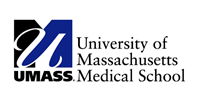
Platinum
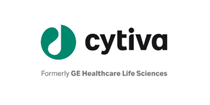
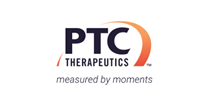
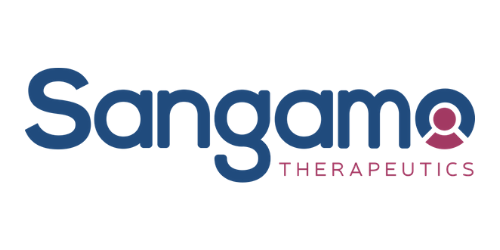_1.aspx?width=210&height=105)
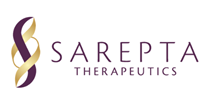
Gold







